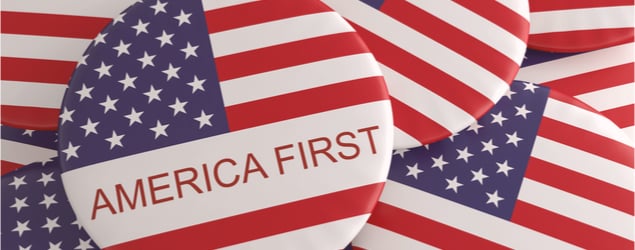In the Sony Affair, Who Is the Real Coward?

There’s something entirely fitting in the fact that the most sensible thing said about Sony’s decision not to release The Interview comes from a place not known for saying sensible things — Hollywood itself — while the most risible comments come from a place that is supposed to have serious responses to things like foreign nations threatening American citizens for exercising their constitutional rights. That’s Washington, D.C. (in case you’ve forgotten that it’s supposed to be a serious place). Comparing the two views expressed is illuminating and goes a long way toward explaining why North Korea felt free to threaten Sony — indeed, all of us—in the first place.
Let’s start with the good, which comes from George Clooney in an interview published in Deadline Hollywood last Friday. Unlike most of his colleagues in Hollywood (and commentators everywhere else), Clooney resisted the temptation to blame Sony or to accuse the company of cowardice. Instead, he recognized that Sony would face the risk of serious liability if it released the film.
There’s no doubt that Clooney is right about the liability issue. The company that owns the theater in Aurora, Colorado where a number of people were shot during a screening of the last Batman film was sued for allegedly failing to take adequate security measures to prevent the shooting. That was an attack they could not have foreseen, yet the judge in their case denied their request to dismiss the lawsuits. If movie companies can be liable for an unforeseeable threat of a shooting by a crazy person, there’s no question they can be held liable for a known threat of a terrorist attack.
Do the people who have accused Sony and the movie chains of cowardice think they should ignore the threat and face the liability and recriminations that would follow if something happened? Wouldn’t many people who are now accusing the companies of cowardice turn on them the moment anything happened and accuse them of shamelessly pursuing profits over people? Many of the same people who are criticizing Sony laughed at the company for weeks because some of the company’s executives wrote embarrassing emails, yet they ignored the impact of the hacking on the company and its employees, and they don’t seem to care much about who might be behind it or whether it had any implications beyond Sony. Did Sony’s executives have any reason at all to think that if they released the film, anyone would support them?
Clooney picks up on these points as well, noting that the cyberattack is a “terrible” threat to Sony’s employees, whose medical records, Social Security numbers, and other personal information was stolen, and that the threat “to blow people up and kill people” is “the actual definition of terrorism.”
Yet, “[a]s we watched one group be completely vilified, nobody stood up. Nobody took that stand. Now, I say this is a situation we are going to have to come to terms with, a new paradigm and a new way of handling our business. Because this could happen to an electric company, a car company, a newsroom. It could happen to anybody.”
Clooney is right, and what is so refreshing about his comments is that they convey a sense of moral outrage. He recognizes that North Korea’s cyberattack and the threats to Sony are an attack on important values — individual employees’ rights to privacy, a company’s right to carry on its business, everyone’s rights to free speech and the freedom to live our lives without the fear of being attacked while watching a movie. And he understands that if no one stands up for these values, they will not last for long.
It’s unfortunately more than we can say for the man who is supposed to take the lead in defending these values when they are threatened or attacked by a hostile regime. So let’s turn to the bad.
On Friday, President Obama held a press conference in which he did something that is all too common for him — he pointed the finger at someone else. “I’m sympathetic to the concerns that they face,” said the President about Sony. But “[h]aving said all that, yes I think they made a mistake.” Instead of deciding not to release the film, according to the president, Sony should have called him to ask for advice: “I wish they’d spoken to me first. I would have told them, ‘Do not get into a pattern in which you’re intimidated by these kinds of criminal attacks.’”
“We cannot have a society in which some dictator some place can impose censorship here in the United States,” said the President. To remedy the situation, our government’s response will be “proportional” and will come “in a place and time and manner that we choose,” he vowed.
It’s easy to forget that the man making these comments is the president of the United States. He’s the commander in chief of our armed forces and the man primarily responsible for deciding how the government will deal with threats against American citizens.
This is a man who has boasted that he has a “pen and a phone” and he knows how to use it. But on this issue, he’s acting like he answers phones at the cybersecurity advice hotline. It’s worth watching the video of his press conference to get a sense of just how detached and passive the president is on this issue. It’s as if he finds the entire thing boring. Give me a call and I’ll offer a few banalities on the situation, but otherwise, why is this my problem?
The president is right that we can’t allow dictators to decide what Americans can say and do. But whose job does he think it is to ensure that that doesn’t happen? It’s not Sony’s (and it can’t be), and Sony is not the one setting the bad precedent. If a private citizen fails to defend himself against a thug, that sets no precedent about the state of the law. But if the police later refuse to take decisive action against the thug or act like it’s not really their problem, that does.
If the president won’t take a strong moral stance against North Korea and in defense of Sony, why would we expect anyone else to? It’s the president’s job to stand up against dictatorships in defense of Americans’ rights — indeed, he and the government he leads are the only ones equipped to do so.
Why doesn’t our president understand this?
Here’s one part of the answer. To exhibit courage and the willingness to act in the face of threats, one must think that whatever is being threatened is actually worth defending. Does President Obama really think anything being threatened in this episode is worth defending? Let’s examine the evidence.
What about businesses like Sony? President Obama has spent his entire tenure in office blaming them for every conceivable ill, from the financial crisis, to the recession, to the alleged problem of income inequality. His administration fined J.P. Morgan after it tried to help the government by taking over Bear Stearns and Washington Mutual, and it sued S&P for downgrading the government’s credit. He has attacked companies for moving abroad to escape punitive taxation. And he doesn’t think that businesses are responsible for their own success. Remember “you didn’t build that”?
What about freedom of speech? Well, the president famously scolded the Supreme Court in his 2010 state of the union address for protecting corporate political speech in Citizens United. And he claimed there was nothing to worry about when the IRS under his watch targeted conservative groups for their political speech. And after the Benghazi attack, his administration wasted no time blaming a schlock video, rather than Islamic terrorists.
What about national security and American interests abroad? This is the president who traveled the world after he got into office to, in essence, apologize for American arrogance. He has flip-flopped on foreign policy matters, he has repeatedly caved to Iran’s demands over its nuclear program, he regularly criticizes Israel for defending itself against Hamas, and he has continued the American policy of appeasement toward North Korea.
In fairness to President Obama, he is by no means the first president to fail to defend these values. America first reneged on its obligation to defend freedom of speech against terrorist threats in the
Rushdie affair
under the first President Bush. Then, during the Danish cartoon crisis, our government under Bush II sided with Muslims who were offended by the depiction of Mohammed while those who published the cartoons were facing death threats. (For more on the Danish cartoons crisis, check out Elan Journo’s interview with Flemming Rose here and two ARI-sponsored panel discussions here and
here.) And our government’s
appeasement of terrorists and dictators, including North Korea, goes all the way back to President Reagan, at least.
But the actions of past presidents is no excuse for failing to act properly today, and, in any event, it just affirms my point: our government lacks any real conviction when it comes to defending important American values — indeed, it often attacks those values — and our allies and enemies all know it.
So what should the government do about North Korea? There are a number of possibilities, starting with opposing the food aid program to North Korea (which only props up the regime), placing the country back on the list of nations that sponsor terrorism (President Bush was wrong to take it off) and imposing economic sanctions. (Personally, I’d like to see the White House sponsor a double-feature of The Interview and Team America: World Police on the Mall in Washington, D.C. The Wall Street Journal has some other creative ideas.)
But here’s one thing that is indispensable to taking the right actions: having the right convictions and being willing to express them. North Korea is ruled by a psychopath who leads what amounts to a criminal gang that is systematically starving its own people. It would be a big leap forward if the president — and intellectuals and other politicians — were just willing to say so.
In short, the president should follow George Clooney’s lead and express a little moral outrage about this situation and a willingness to stand up for the values that are under attack. It’s possible Sony and the theater chains could have shown a bit more spine in this episode — say, by defending themselves a little more forcefully in the press. But until the President and others in Washington are willing to take a firm stance, we shouldn’t blame private companies for their unwillingness to face down North Korea alone. Just learning that lesson would help.



